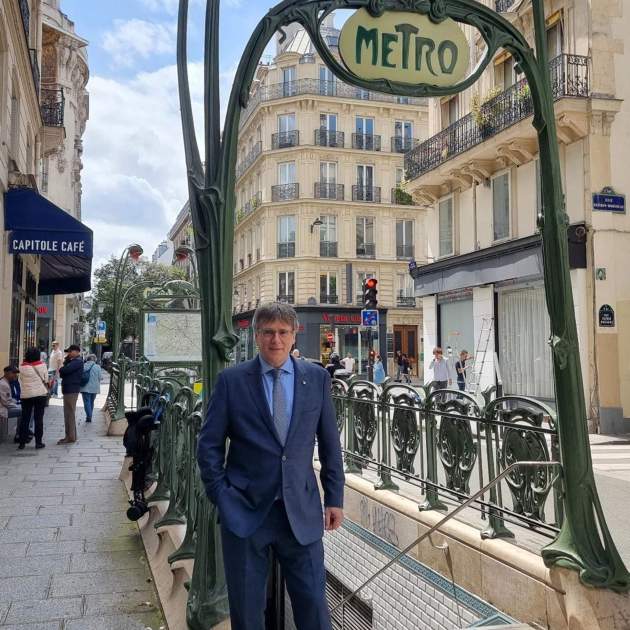A new move from Catalan president-in-exile Carles Puigdemont in response to the judicial siege. The pro-independence leader appeared on Monday before the French authorities, who formally notified him of the existence of a procedure against him for terrorism in the Democratic Tsunami case. Through a letter addressed to the Spanish Supreme Court, his lawyer, Gonzalo Boye, asked that these statements be added to the proceedings in that case and that he be accepted as having appeared voluntarily in the case. At the same time, he demanded from the investigating judge that a period be granted for a decision to be made on the applicability of Spain's recently passed amnesty law to this case.
On February 29th, the Supreme Court opened a case against Puigdemont to investigate him for the crime of terrorism, following the protests organized by the Democratic Tsunami protest platform after the October 2019 announcement of the verdicts in the Catalan independence process leaders' trial. In its decision in February, the court equated Tsunami with "street terrorism" or kale borroka practiced in the 90s in the Basque Country. Subsequently, on April 8th, amidst the pre-campaign for the Catalan elections, the investigating judge of the Supreme Court, Susana Polo, summoned Puigdemont and the deputy Ruben Wagensberg, exiled in Switzerland, to testify voluntarily and by video conference for this case between the days June 17th and 21st. With the entry into force of the amnesty law for independence process cases, Polo suspended the interrogations and gave ten days to the parties involved in the case to submit arguments on whether those investigated in this case are eligible to be amnestied under the new law.
Appeared over the case
However, Puigdemont appeared on the first day of the designated period, this very Monday, in a voluntarily action in Paris, and the French authorities informed him of the procedure opened against him and the resolutions of the court under which he and others are being investigated within this case for possible crimes of illegal detention and coercion, injuries, forgery in a commercial document, property damage and terrorism. The Catalan president did not testify. He only went to respond to the summons and inform that he will not testify before the Spanish judge. In any case, he was willing to testify before a French judge.
In the document that Puigdemont presented to the Supreme Court this Tuesday, he asks that the court accepts the statements he has made and incorporates them into the case and, once formally brought into the case, that he be informed about the content of the procedure and the resolutions adopted from the moment when the judicial action was directed against the pro-independence leader in exile.
Likewise, and given that the judge has already given a ten-day deadline for the parties to decide whether or not the amnesty law should be applied to this case, Puigdemont's defence lawyer also asks to have the necessary time to present his arguments.
